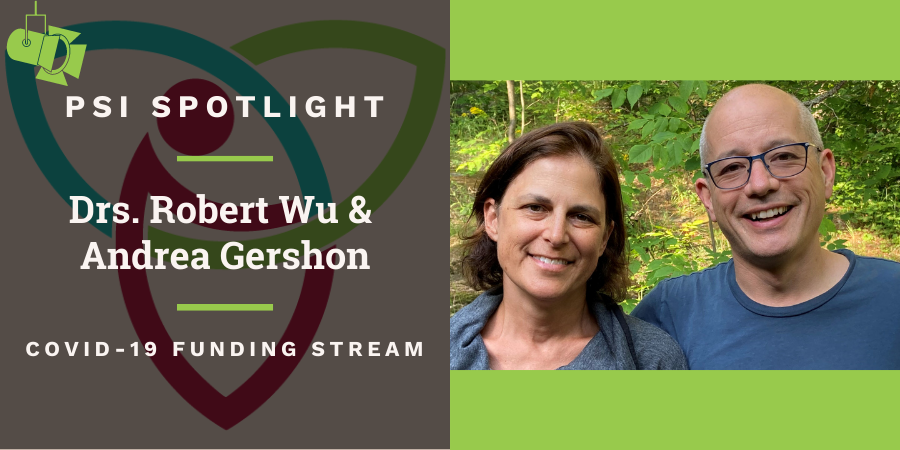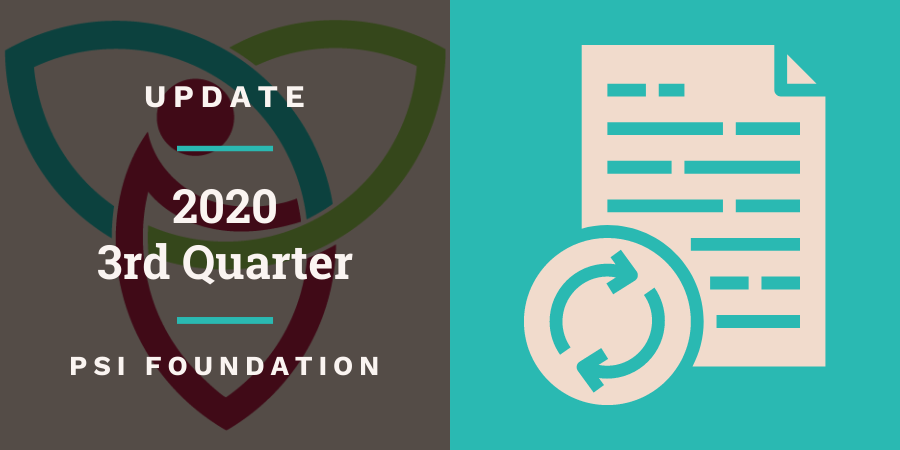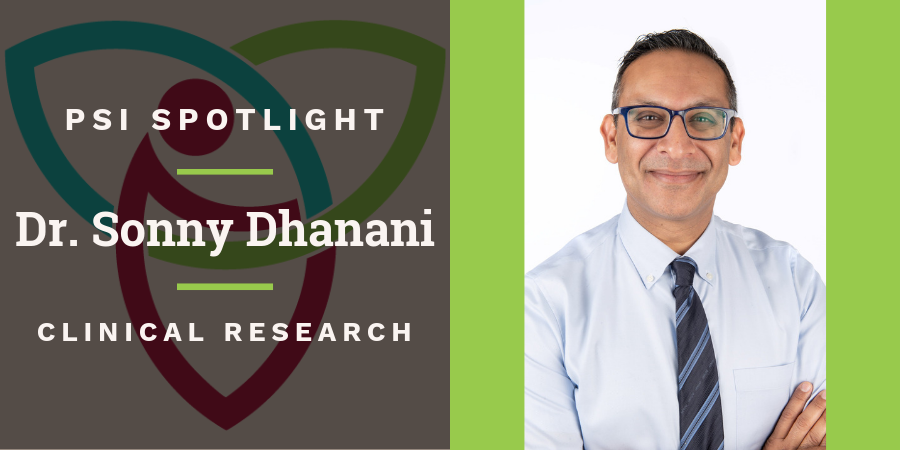PSI Foundation often funds large collaborative teams to tackle challenging research problems, but a newly funded team through the PSI COVID-19 research grants has a key difference.
Dr. Robert Wu is an internist at University Health Network with an interest in informatics to improve patient care, and Dr. Andrea Gershon is a respirologist at Sunnybrook Health Sciences Centre who uses large health administrative data sets to study health outcomes of people with lung disease. They are two of the principal investigators in a large team developing cutting-edge wearable patient monitoring technology.
But their partnership extends beyond research. The pair first met in medical school and have been married for more than 20 years.
Drs. Wu and Gershon have rarely collaborated on research over the years, but about five years ago they had an opportunity to combine their overlapping interests on an innovative project. They began to collaborate with Dr. Eyal de Lara, a computer scientist at the University of Toronto, and a large team of clinicians and computer experts to develop an app and smartwatch system that can monitor and detect exacerbations in COPD patients.
The work was progressing well, but it ground to a halt as Ontario entered a state of emergency in March due to the COVID-19 pandemic. The project team realized that the groundwork they had already done for the COPD app could be applied to COVID-19 and quickly pivoted the research. “There was a lot of enthusiasm for the idea, and the team sincerely wanted to do something that would help people through a difficult time,” says Dr. Gershon. “I think people were happy to have something meaningful to focus on.”
Their new PSI Foundation COVID-19 research grant, which includes Dr. de Lara as the third principal investigator, will support the team’s work to develop at-home monitoring technology for COVID-19 patients and a model to predict those patients at highest risk of deterioration. Dr. Wu says that PSI’s quick response to the pandemic has been critical, even as cases started to decline at the beginning of the summer. “The timeliness is really important. It lets us prepare for the next wave that may be coming,” he says. “We can make sure that we have all the systems set up, and the algorithms and app further developed so we can be ready to use it for the next wave.”
At the height of Ontario’s COVID-19 diagnoses in the spring, some physicians and health care teams were following as many as 50 or 60 COVID-19 outpatients at one time. Monitoring these patients using traditional systems – reviewing individual charts and making regular phone calls to patients – was time consuming and unsustainable in the long term.
At the same time, physicians have a hard time predicting which patients are at the highest risk of deterioration and needing hospital care. Dr. Wu says that the presence or absence of symptoms does not necessarily correlate with oxygen saturation and disease severity.
The team is adapting their COPD app for patients to report symptoms and measurements such as temperature and oxygen saturation. Smartwatches will continuously measure physiological measures such as respiratory rate, heart rate and cough. By integrating these measures and patient outcomes, they aim to develop a model to predict which outpatients are at highest risk of deterioration so they can be monitored more closely. They are also developing a dashboard for physicians that will incorporate real-time data from patients and the prediction model to help physicians monitor large numbers of patients at one time and flag those at highest risk.
Dr. Gershon, who was a PSI Foundation Graham Farquharson Knowledge Translation Fellow from 2013 to 2015, credits PSI and the fellowship with giving her the time to allow her to pursue this field of research. “Working with wearables and technology is high-risk research, and I’ve been really impressed that PSI is willing to take those risks,” she says. “Their willingness to look at the future and invest in technology with a focus on patient care is admirable.”
Collaboration from a variety of experts has been key to the team’s efforts, and Drs. Wu and Gershon have appreciated the contributions of the team to the project. And the pair has particularly enjoyed the opportunity to work on this research together during this unusual and challenging time. “There’s highs and lows like any research project,” says Dr. Gershon, “but it’s always nice to go through those highs and lows with someone else.”



